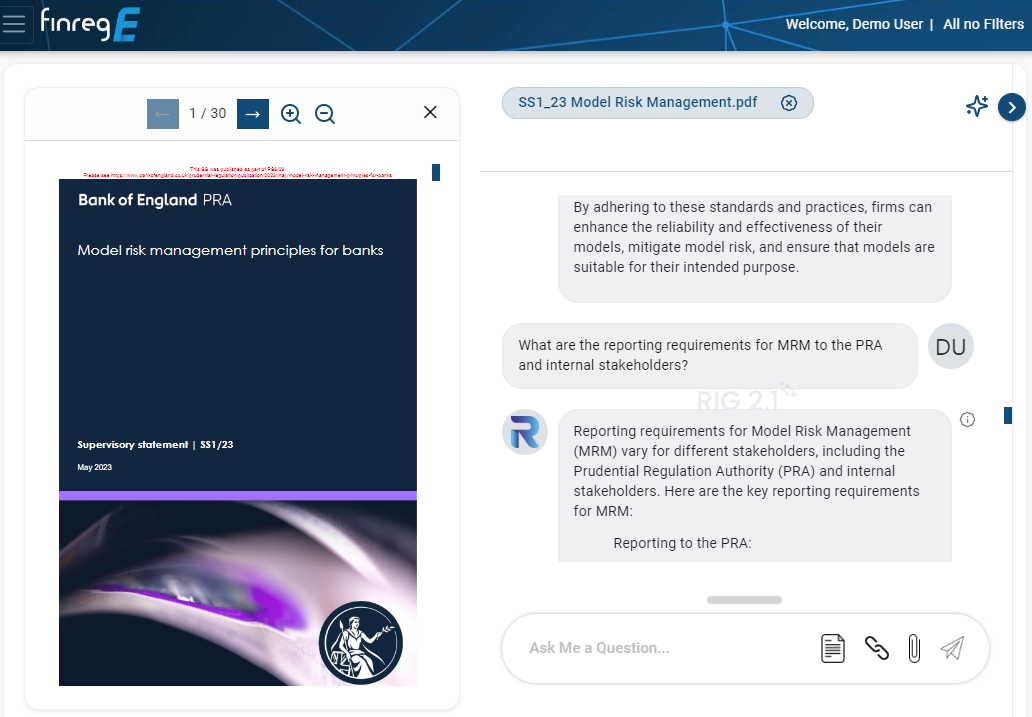The fallout from the COVID-19 pandemic has had an irrevocable impact on the financial industry since the way financial institutions (FIs) operate has been fundamentally altered.
Not only have these changes impacted how customers, investors, and FIs interact with each other, but they have also brought on new challenges, making it hard to operate profitably within the industry due to the increased risk factors FIs have to contend with.
In response, authorities have unveiled a slew of new updates with the aim of protecting the FIs and their customers against business risks and ensuring business continuity in a volatile environment.
But, this has only served to exacerbate regulatory risks as, today, financial institutions have to devise ways to incorporate regulatory changes in their workflows to ensure compliance.
This requires organisations to find the best approaches to risk management—a process that many financial service providers struggle with.
In this post, we highlight some of the key areas that organisations need to focus on to develop a flexible compliance strategy and a robust risk management process that allows them to respond rapidly to unexpected regulatory changes.
The best approaches to risk management in business
Focus on eliminating redundancies
As regulators enforce regulatory changes, FIs must make it their priority to improve efficiency and effectiveness in their risk management functions.
That said, achieving this level of efficiency requires compliance teams to streamline the compliance management process by identifying redundant risk controls that may be weighing the entire function down.
For instance, due to the rapid rate of regulatory changes following the onset of the pandemic, regulatory processes that were leveraged before the arrival of COVID-19 are most likely to have redundant controls in the first, second, and third lines of defence—removing them could simplify compliance management and make it easier to manage regulatory risks.
However, making the switch to a streamlined regulatory process comes with its share of challenges because it requires a thorough analysis to identify redundancies, making it costly and time-consuming.
Moreover, most FIs do not view risk management as a function where productivity needs to be managed and regulated. Addressing this perception is key to making the necessary changes to risk management.
When risk management is seen as a productive function within the organisation, there will be a greater drive towards reducing the impact of unexpected regulatory updates.
Adopting this flexible process allows you to control costs, eliminate redundancies, and deliver solutions that stand up to regulatory scrutiny.
Here, embracing automation and RegTech solutions can bring a host of benefits to FIs; they can leverage advanced analytics algorithms to identify redundancies, helping them make the necessary changes and drive up efficiency.
Adopting a more flexible business model for volatile times
Given that regulators are bringing updates more frequently, organisations must rethink their business models if they are to manage risks and adapt workflows to meet regulatory requirements.
While anticipating regulator change can be difficult with manual means, by advanced insights delivered by RegTech solutions, FIs can restructure their business model to account for greater flexibility, allowing them to identify compliance gaps faster, which is critical for meeting these new updates.
Integrate risk management into product and software design
As FIs embrace digital transactions, speed and responsiveness will be key for successful compliance management.
This means embedding risk management into critical risk interactions, which helps shorten response times, making it easier to meet the requirements of compliance updates.
Integrating risk management can also help complete several critical operations, such as streamlining account openings or bringing new offerings to the market, without risking compliance violations.
Moreover, businesses will need to rethink product design and shorten lifecycle development from weeks to days and update fraud algorithms to enhance risk controls.
Leverage RegTech solutions to reduce negative impacts of regulatory change
With the finance industry rapidly changing, modernising risk management ensures that these organisations can respond to regulation changes swiftly and effectively.
This is where RegTech solutions become critical because such solutions can help FIs optimise the compliance management processes by eliminating redundancies and improving workflows.
Integrating RegTech platforms into the process allows financial service providers to optimise risk management procedures as these platforms leverage AI, analytics, NLP, and a host of other advanced technologies to turn compliance management into a more responsive process.
If you’d like to learn more about RegTech solutions and want to explore the benefits of adopting them to streamline your risk management processes, contact our experts FinregE.


